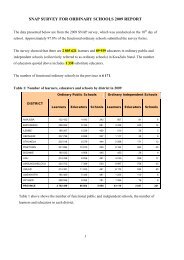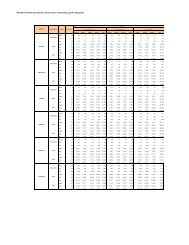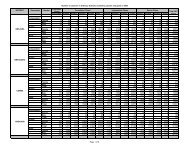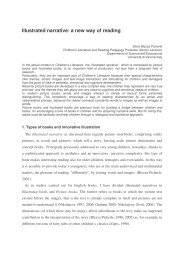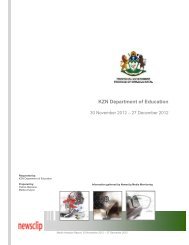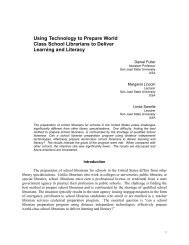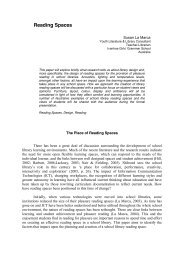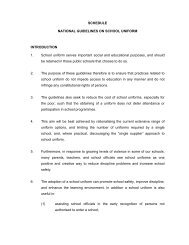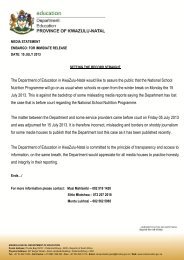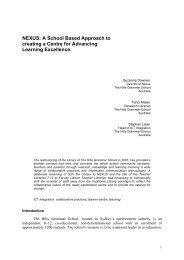National School Nutrition Programme - KwaZulu-Natal Department ...
National School Nutrition Programme - KwaZulu-Natal Department ...
National School Nutrition Programme - KwaZulu-Natal Department ...
Create successful ePaper yourself
Turn your PDF publications into a flip-book with our unique Google optimized e-Paper software.
learners in participating schools selected/appointed to<br />
work as cooks or prepare meals for learners on all<br />
feeding days.<br />
2.13 Stipend/honorarium: refers to a stipulated fixed amount<br />
paid to the voluntary food handler/cook at the end of<br />
the feeding month.<br />
2.14 Centralized Payment: refers to the system of payment in<br />
which service providers are paid directly by the<br />
<strong>Department</strong> through their authorized bank accounts.<br />
2.15 Decentralized Payment: a new system that shall be<br />
implemented with effect from 2012/13 in which NSNP<br />
funds shall be transferred to schools in quarterly<br />
tranches for the payment of service providers.<br />
2. BACKGROUND<br />
The <strong>National</strong> <strong>School</strong> <strong>Nutrition</strong> <strong>Programme</strong> (NSNP), previously<br />
known as Primary <strong>School</strong> <strong>Nutrition</strong> <strong>Programme</strong> (PSNP) was<br />
introduced in 1994 as one of the Presidential Lead projects<br />
of the Reconstruction and Development <strong>Programme</strong>. The<br />
programme was introduced as a strategy to alleviate poverty.<br />
Poverty, under nutrition, household food insecurity problems<br />
are co-related and their casualties overlap. Under-nutrition<br />
is caused by inadequate food intake, which can be caused by<br />
poverty and household food insecurity. The poverty<br />
statistics by the World Bank, 1996, indicated that <strong>KwaZulu</strong><br />
<strong>Natal</strong> has a poverty level of 26%. 53% of the population in<br />
the Province is poor (Census 1996). Studies by the Food<br />
Agriculture organization (FAO), UNESCO and the World Health<br />
Organization (WHO) indicate that hunger impacts negatively<br />
on the Millennium Developmental Goals (MDG’s), namely<br />
universal primary education, gender equality, child<br />
survival, maternal health, management of HIV and AIDS, TB<br />
and malaria, and environmental stability.<br />
Given the high incidence and severity of poverty in <strong>KwaZulu</strong><br />
<strong>Natal</strong> Province, hunger is a real problem affecting millions<br />
of children from poor households. HIV and AIDS have a<br />
KZN-DOE NSNP Policy 2011 -4-<br />
13/9/P



